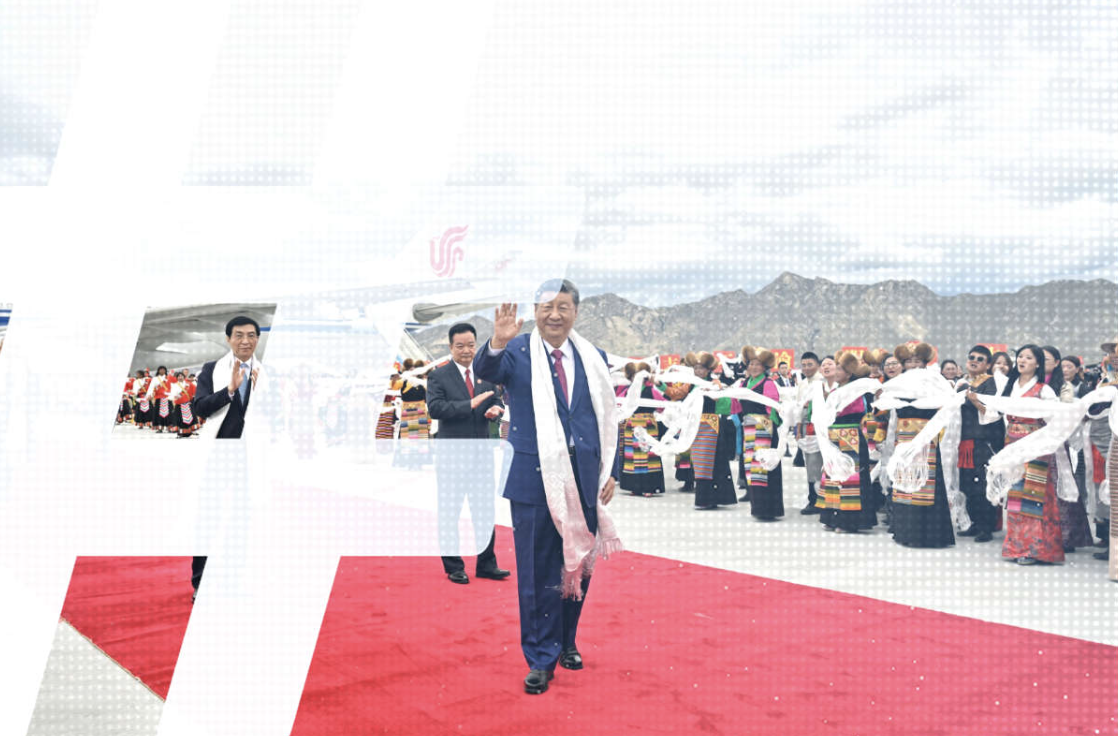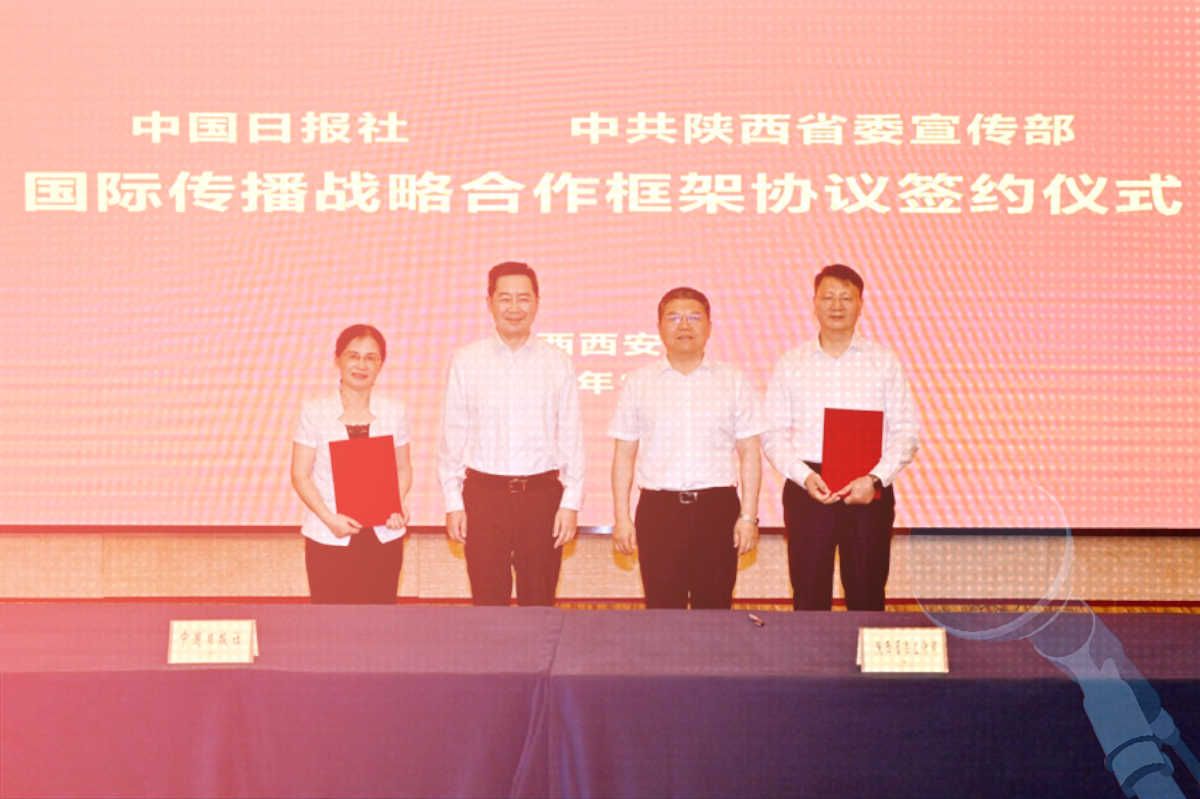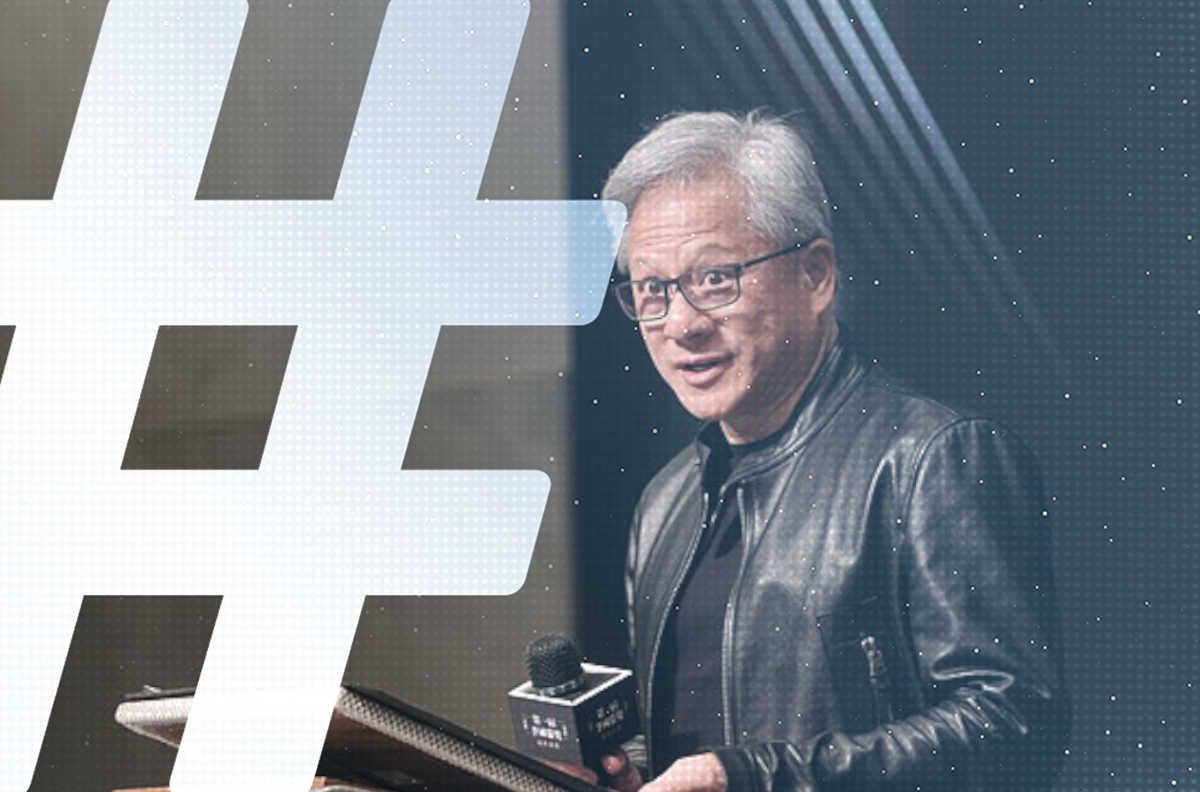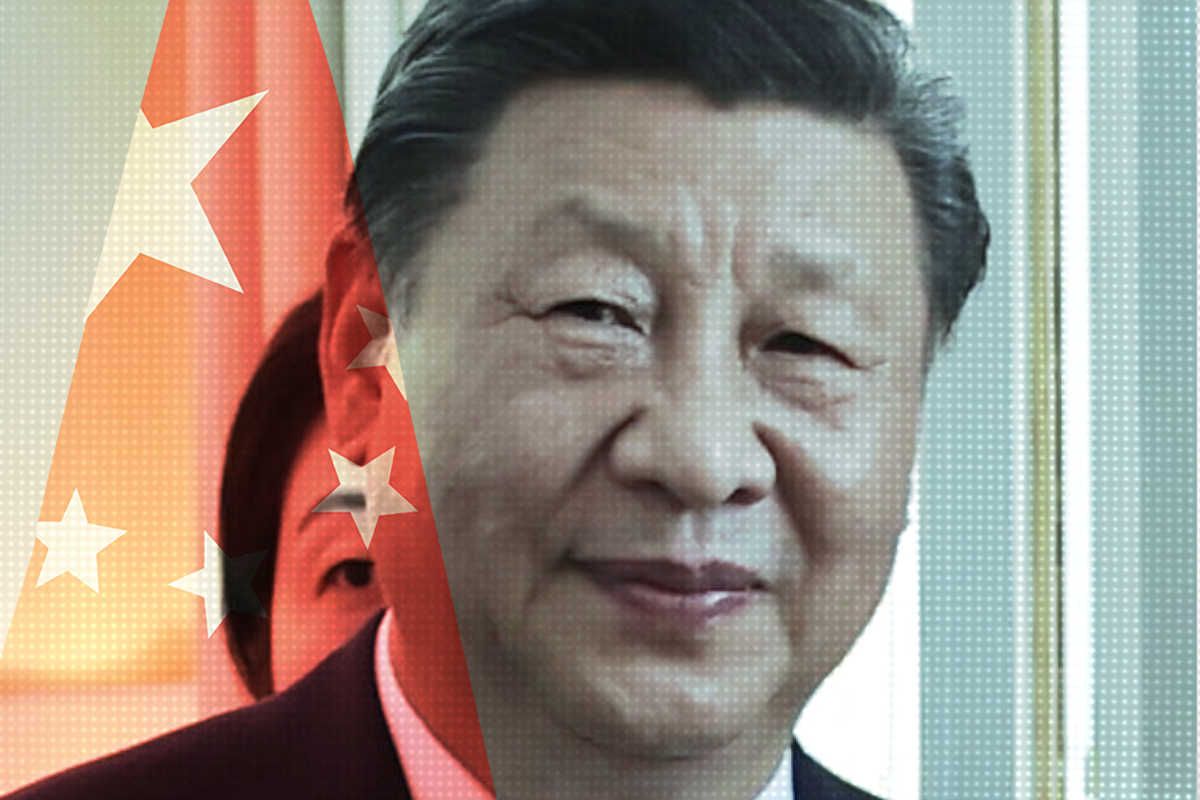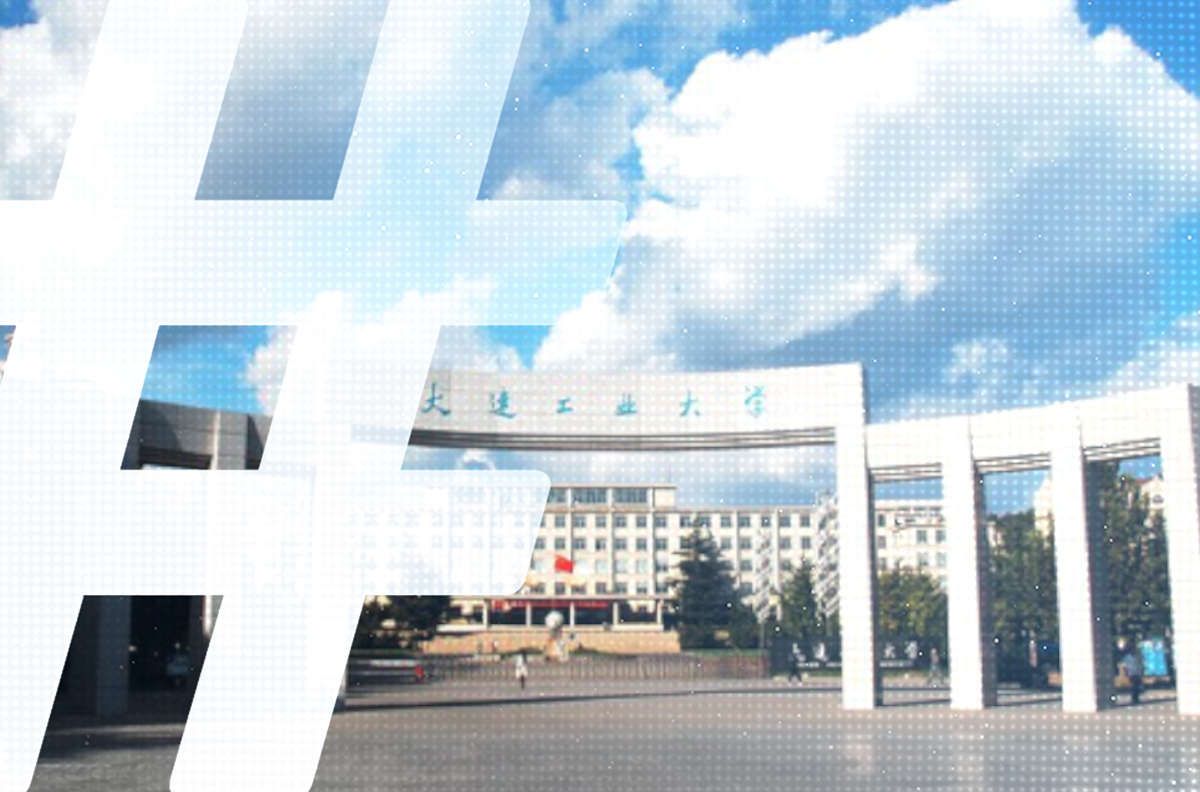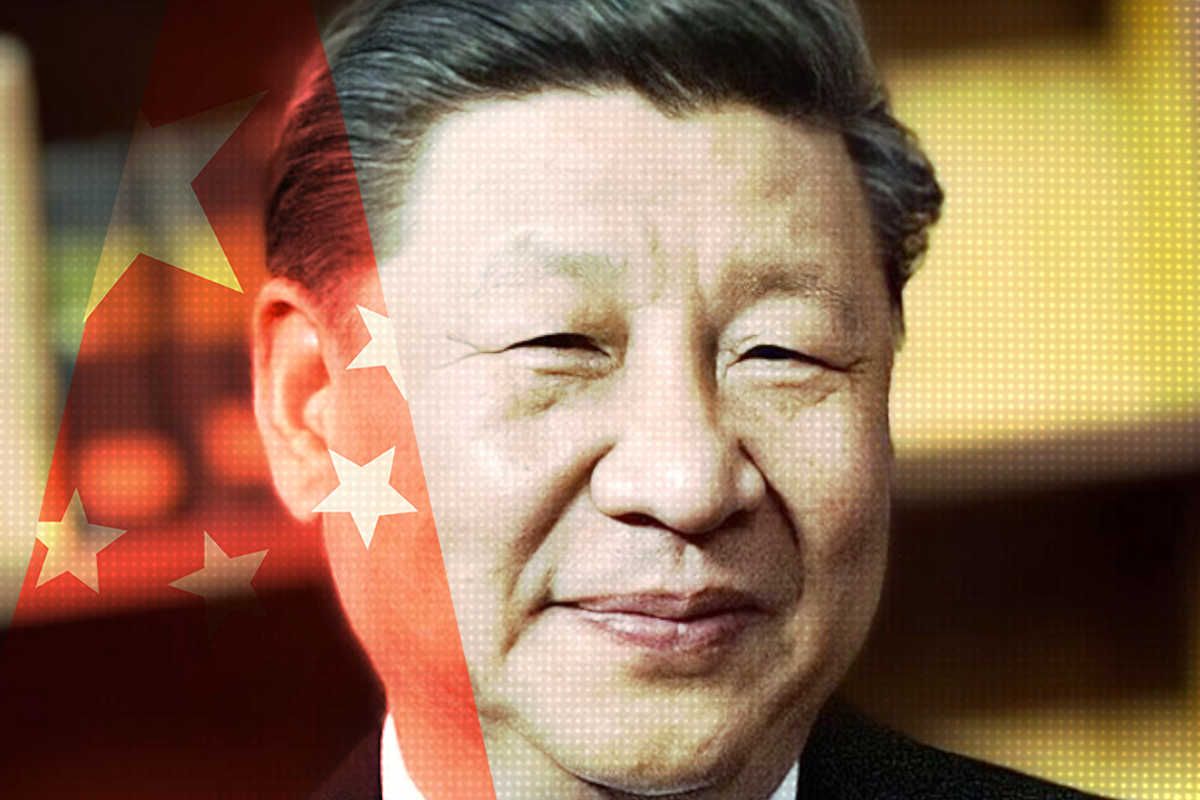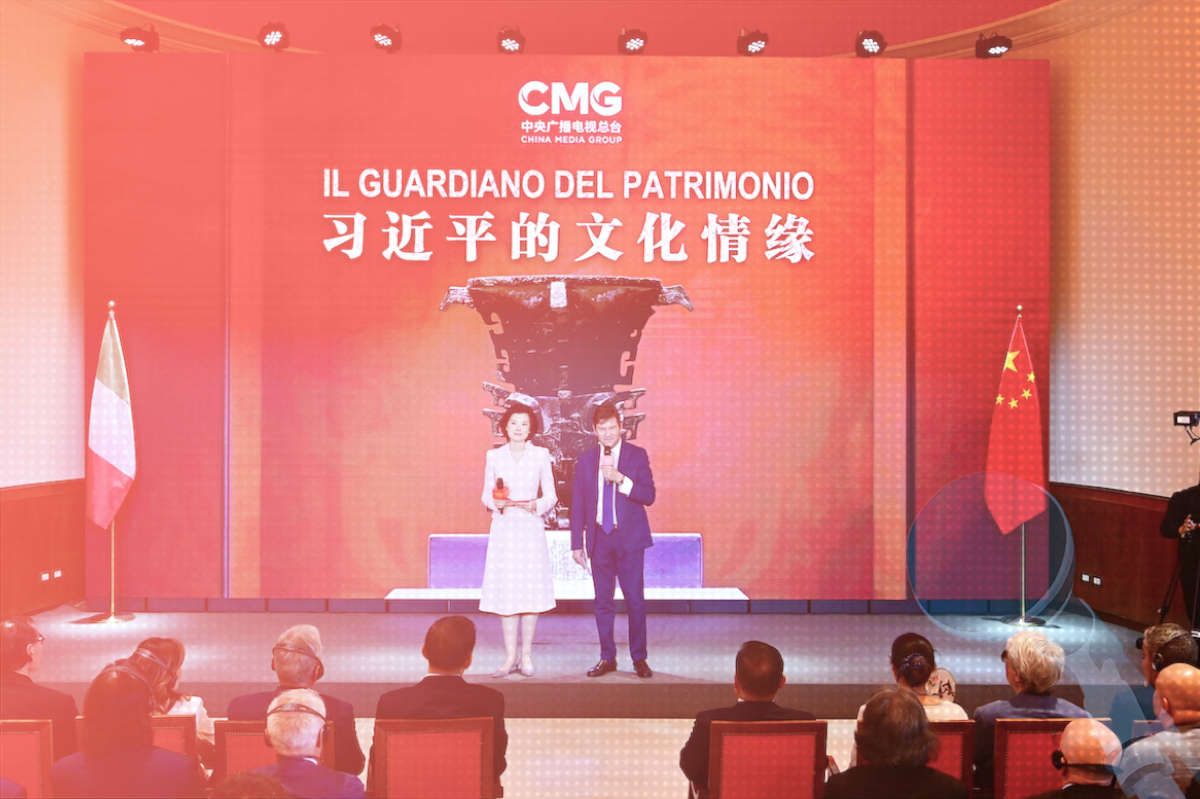Headlines and Hashtags
Web Users Expose Faked Police Photo
This week we had a range of Chinese media stories, including two debates happening online and in the news pages — one about a finance expert’s suggestion that China’s private sector should “yield” to the public sector in light of economic pressures and the need to concentrate national strength, and another about the authenticity of a police propaganda photo (above).
Also this week, a notice on changes at the National Radio and Television Administration (NRTA) suggests the body will no longer be responsible for the management of journalists’ press credentials in China, news publishing, the printing business and other areas, but will focus instead on online video and strategies for convergence across networks (telecoms, radio and television and the internet).
Also on our list is the apology from Netease for unspecified content violations, which we covered several days back.
THIS WEEK IN CHINA’S MEDIA
September 8 to September 14, 2018
➢ Idea that “the Private Sector Should Leave the Field” Subjected to Criticism
➢ Special Funds Approved for Political and Ideological Education at Chinese Universities高校思想政治工作专项资金设立
➢ Netease Finance Announces “Rectification” of Platform
➢ Authenticity of Hunan Propaganda Photo Called Into Question
➢ National Radio and Television Administration Announces Personnel and Other Adjustments
[1] Idea that “the Private Sector Should Leave the Field” Subjected to Criticism
On September 12, finance expert Wu Xiaoping (吴小平) published an article online called “China’s Private Sector Has Already Achieved the Task of Assisting Public Sector Development, and It Should Now Leave the Field” (中国私营经济已完成协助公有经济发展的任务,应逐渐离场), arguing that the role of the private sector has been to “assist the public sector in achieving leapfrog development,” and that this goal has already been achieved. For this reason, wrote Wu, “in the next phase, it will not be so easy for the private sector to expand blindly.” Wu further noted that the United States and other developed economies have are coordinating to contain China’s rise, and the country would face unimaginable pressures and obstacles if it could not find ways to consolidate its national strength.
Wu Xiaoping’s arguments were attacked in many Party media. On the 13th, the Economic Daily, the China Business Times and The Beijing News all issued responses emphasizing the so-called “two unmovables” (两个毫不动摇) – the idea, emerging in the political report to the 19th National Congress of the CCP in October 2017, that both public and private sector development must be encouraged and supported. The WeChat public account “People’s Daily Commentary” (人民日报评论) said that in a period of difficult transition for the Chinese economy the role of the private sector was more crucial than ever.
Some commentaries appearing on WeChat argued that there was merit to Wu Xiaoping’s arguments and that the strong reaction reflected collective concern over the direction the economy was heading.
Key Chinese Sources:
People’s Daily (人民日报): 踏踏实实把民营经济办得更好(人民时评)
Economic Daily (经济日报): 对”私营经济离场论”这类蛊惑人心的奇谈怪论应高度警惕——“两个毫不动摇”任何时候都不能偏废
China Business Times (中华工商时报): 毫不动摇地坚持我国基本经济制度
WeChat Public Account “People’s Daily Commentary” (人民日报评论): 人民日报评民营经济:只会壮大、不会离场
The Beijing News (新京报): “私营经济应离场论”, 实为不懂国情之怪论
The Beijing News New Media (新京报新媒体) [link already disabled]: 建议“私营经济退出”,称”2018年A股大牛市”,吴小平是谁
WeChat Public Account “Phoenix Online Finance” (凤凰网财经): 私营经济应离场?谬论刺激的焦虑才是真问题!
[2] Special Funds Approved for Political and Ideological Education at Chinese Universities
Special funds from China’s Central Treasury have been approved for political and ideological work at China’s universities (高校思想政治工作专项资金), entering the overall budget for the Ministry of Education. In recent days, the Ministry of Education has released a document called Provisional Regulations for the Management of Special Funds for Political and Ideological Work at Universities (高校思想政治工作专项资金管理暂行办法), providing the specific applications, management and principles of the special fund at Chinese universities.
The provisional regulations stipulate that uses of the special fund include: carrying out study and propaganda campaigns at Chinese universities on Xi Jinping Thought on Socialism With Chinese Characteristics for the New Era; cultivating of “advanced models” (先进模范) and “superb exemplars” ( 优秀典型) for use in political and ideological education that have national relevance; developing lessons and methods for promoting praise for “excellent Chinese traditional culture” on campuses, and for creating a healthy campus culture; conducting research on political and ideological work at universities, and other programs.
Key Chinese Sources:
The Paper (澎湃新闻网): 教育部:设高校思想政治工作专项资金,建立监管长效机制
Guangming Daily (光明日报): 高校思政工作专项资金怎么用
Gov.cn (中国政府网): 教育部关于印发《高校思想政治工作专项资金管理暂行办法》的通知
[3] Netease Finance Announces “Rectification” of Platform
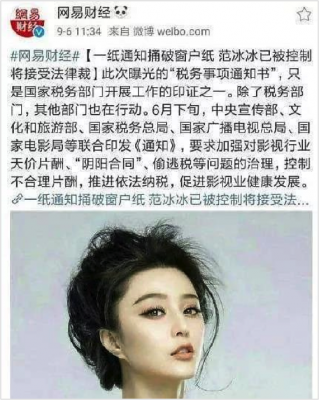
On September 11, Netease issued a “Rectification Notice” (整改公告) that said: “Owing to a number of serious problems that have occurred in the process of operating the Netease Finance Channel, it is decided that from September 11, [2018], effective 12PM, [the channel] will cease content refreshing and carry out a deep and thorough rectification, energetically purging illegal conduct.
Analysis of the incident by the WeChat public account “Mei Tong She” (媒通社) speculated: “[The reason is] perhaps that the ‘Daily Stock Market Conversation’ column contained idle (空类) commentaries that affected investor sentiment; [or it could be that] Netease Finance recently ran images speculating about the circumstances facing actress Fan Bingbing (范冰冰), and said ‘Fan has already been detained and will face legal repurcussions,’ but so far there has been no public statement from the government as to the handling of the shadow contract case against Fan Bingbing — and the risk entailed by the speculation from Netease Finance was high.”
Key Chinese Sources:
Zhejiang Online (浙江在线): 网易宣布停止财经频道更新 大力整顿违规行为
WeChat public account “Mei Tong She” (微信公众号“媒通社”): 好奇心日报恢复更新一周后,网易财经宣布停更整改
[4] Authenticity of Hunan Propaganda Photo Called Into Question

On September 9, many social media accounts in China heaped doubt on the authenticity of a photograph appearing at Hunan’s “Eternal Flash Photography Exhibition” (永恒瞬间摄影展), held to commemorate 40 years of reform in the province. Titled “Policeman Catching Falling Woman With His Bare Hands” (民警徒手接坠楼女子), the photograph shows a young woman in a white top and striped skirt caught in mid plunge from a building. Beneath her, a police offer steps up confidently to receive her in his arms.
Sharing the picture across numerous sites, internet users questioned whether a real-time photograph of such quality would ever be possible. On September 10, the propaganda office of the Hunan Provincial Public Security Bureau made a public explanation for the photo, saying that in fact it had been taken by a production team to reenact a scene from July 2016. It had been created especially for the exhibition.
Key Chinese Sources:
Jinri Toutiao (今日头条): 永恒瞬间摄影展照片:民警徒手接坠楼女
Beijing Youth Daily (北京青年报): “徒手接坠楼女”照片怎么来的 “精彩抓拍”引发照片真假争论 湖南警方释疑:系事后情景再现
[5] National Radio and Television Administration Announces Personnel and Other Adjustments
On September 11, the Central Institutional Organization Commission, an agency of the Central Committee of the Chinese Communist Party, published new guidelines on its website for the National Radio and Television Administration (NRTA). A comparison with similar guidelines released in 2013 for what was then the State Administration of Press Publication Radio Film and Television (SAPPRFT) shows a number of changes to personnel and departments within the NRTA.
The language of the notice removes reference to “responsibility for the supervision and management of the issuance of press cards for journalists nationwide” (负责全国新闻记者证的监制管理), and also removes content about the office taking responsibility for news publishing (新闻出版), copyright management (著作权管理), digital publishing (数字出版), printing business (印刷业务), and the coordination of national campaigns against indecent content (扫黄打非). However, in the area of management of online video programming, a great deal of language has been added — suggesting that this will be an area of focus for the agency.
The number of offices within the NRTA will now be 13, down from 22 previously. The new regulations stipulate that the responsibility of the “new media convergence development office” (新增媒体融合发展司) will be to “draw up major reform measures for radio and television, promoting the reform of systems and mechanisms; coordinating the convergence of the three networks (meaning telecoms, radio and television, and the internet), promoting the innovative and coordinated development of new media, new technologies and new industries.”
In terms of personnel, the office will be reduced almost to half, with 263 staff as opposed to 508. There will be one director and 4 deputy directors.
Key Chinese Sources:
Central Institutional Organization Commission (中国机构编制网): 国家广播电视总局职能配置、内设机构和人员编制规定
WeChat public account “Chuanmei Toutiao” (微信公众号”传媒头条”): 国家广播电视总局三定方案发布,这些变化要知道
WeChat public account “Chuanmei Cha Hua Hui” (微信公众号”传媒茶话会”): 广电总局“三定”方案出台!不再负责新闻记者证监制管理!




